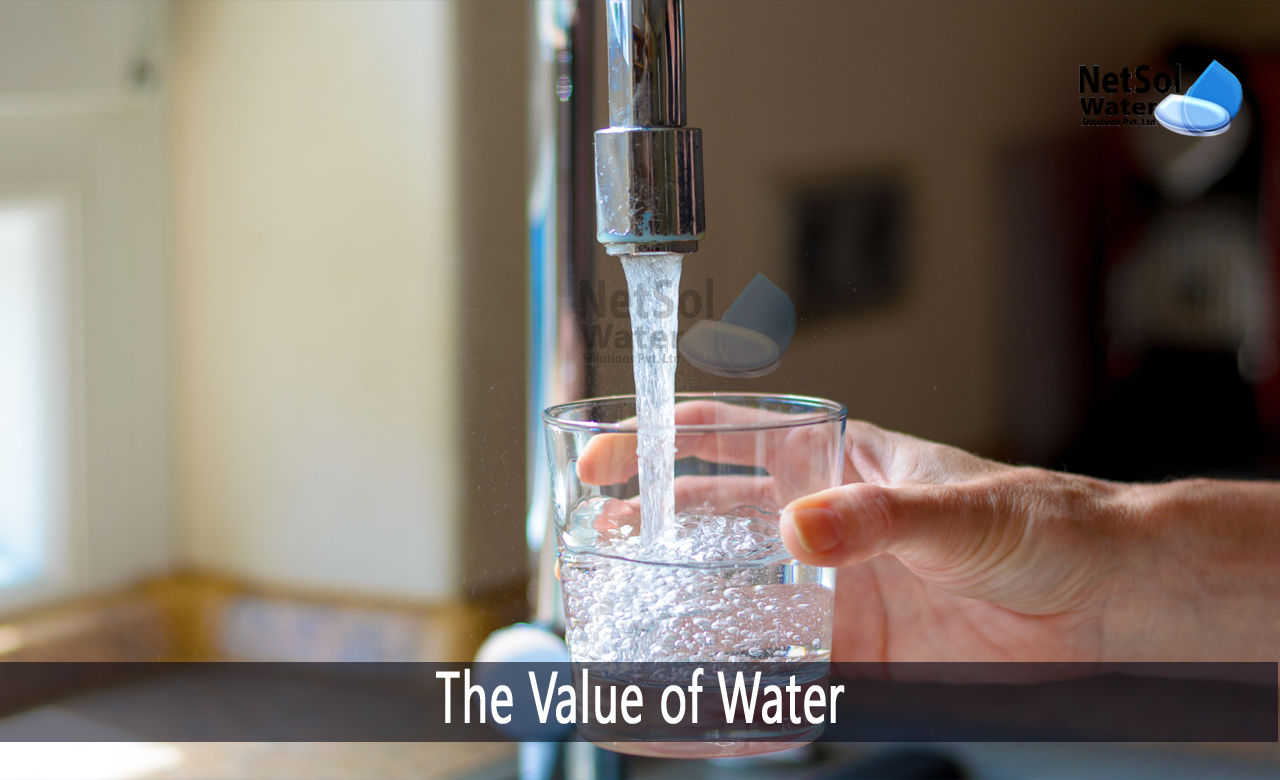Ourattitudes towards water vary greatly at the moment. Some see it as a resource that can be used to their advantage. Others value it for its intrinsic value or as an object of spiritual or religious veneration. Some people want to use it to gain political, diplomatic, or military advantage. Others see water as forming relationships between people and their environment, or as a source of artistic creativity, recreation, and pleasure.
Some believe water can be owned, while others believe it is a universal public good. Many people do not consider it; they simply take its continued availability for granted. In short, all of the people value water differently, if at all!
What are the 4 value of Water?
Let’s understand the value of water in the following ways:
1. Water is valuable, and fragile
Water, along with land, air, and energy, is the bedrock of life and economies. Water is more than just a substance; it has many different values and meanings. These are expressed in spiritual, cultural, and emotional terms in water language, norms, and artefacts. These reflect society's deep perceptions, need for connections, and participation.
Making water available for its many uses and users necessitates the development of tools and institutions, to transform it from a natural resource to one that provides services, as well as the recovery and safe return of water to ecosystems. Water and its sources must be respected because they have the power to harm, divide, or even destroy societies, if they are neglected or misused.
2. Water resources are limited and under threat from multiple pressures, necessitating large-scale action
Today, the world's water systems are under threat from overuse, pollution, and climate change. Extreme weather events, such as droughts and floods, are affecting communities all over the world.
Millions of people do not have access to safe drinking water at home, and sanitation is poorly managed. Rising population and economic growth are driving up demand.
3. Water valuation encourages efficiency and better practices
Economic instruments and regulation based on values can signal scarcity, prevent waste, and promote conservation. Any use of water is dependent on healthy ecosystems and infrastructure, which are both valuable and expensive to preserve, provide, operate, and maintain. These costs must be completely covered for sustainable water management.
Pricing is a component of the solution, but price does not equal value. When tariffs and prices are used, safeguards are required to ensure that everyone has access to clean water, which is equitable and affordable.
4. Valuing and managing water effectively presents a transformative opportunity
It can help to convert risk to resilience, poverty to well-being, and degraded ecosystems to sustainable ones. Working across sectors, communities, and nations to value water will help to mitigate conflicts, and build collaborative relationships, thereby contributing to national and international stability and peace.
The value of water for climate
Our planet's coating of water is astonishingly rare in the observable universe. Groundwater and surface water, oceans and atmosphere combine, to form an environment on which all life depends, but which many astronauts describe as "impossibly fragile."
For the first time in our planet's history, a single life-form - humanity - has the ability to influence the water environment, for better or worse. Understanding, appreciating, and caring for water in all of its forms, is critical to human survival.
The financial and economic value of water
Water's political economy is complicated. Water security improves economic, social, and environmental outcomes. Increased water collaboration between neighbouring communities and countries, as well as between financiers and different sectors of the economy, serves their current and future needs.
Water and its wise management benefit society as a whole.
Conclusion
Every human activity has a carbon footprint, and every human activity has a water footprint. Food, manufactured goods, power, transportation, and environmental management, are all dependent on water and natural ecosystems.
They can be better sustained in the future if their water footprints and impacts on those ecosystems, are better calculated, understood, and valued.
How can we assist?
A wide variety of water and wastewater treatment options are offered by Netsol Water, including physical, chemical, and biological processes such as activated carbon, membrane filtration, RO Plants, flotation, coagulation, electrodialysis, and many more advanced treatment plants, to protect and value the most precious resource, that is Water.
Netsol Water is Greater Noida-based leading water & wastewater treatment plant manufacturer. We are industry's most demanding company based on client review and work quality. We are known as best commercial RO plant manufacturers, industrial RO plant manufacturer, sewage treatment plant manufacturer, Water Softener Plant Manufacturers and effluent treatment plant manufacturers. Apart from this 24x7 customer support is our USP. Call on +91-9650608473, or write us at enquiry@netsolwater.com for any support, inquiry or product-purchase related query.



